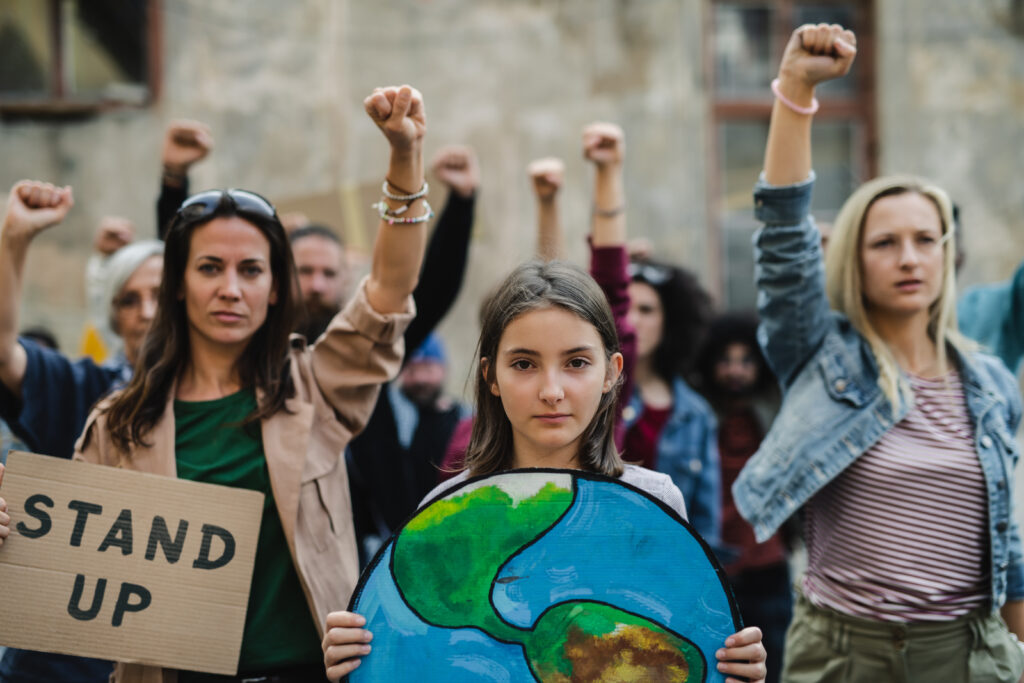Over the last two years, our team has applied our expertise to several climate change response and adaptation projects in BC. It’s been a powerful and rewarding experience for our team of communication and engagement consultants who care deeply about affecting real change in the face of our worsening climate crisis. It’s also invited us to reflect on how climate change work complements and amplifies our identity as an intersectional feminist firm.
Intersectional environmentalism and eco-feminism connect the exploitation of the planet with the oppression of equity-deserving groups. These movements advocate for a world where both the earth and its diverse inhabitants are respected and nurtured.
Unfortunately, environmental narratives are often tokenized, weaponized or just misunderstood. We’re delving into the do’s and don’ts of eco-feminist communication, so our language can foster genuine advocacy and action.
why intersectional environmentalism?
Intersectional environmentalism proposes that the systems and beliefs that lead to the oppression of marginalized genders and equity-deserving groups are often the same forces driving environmental destruction. This perspective encourages us to explore more sustainable and equitable approaches to interacting with our world. As we celebrate Earth Day, it’s crucial to incorporate an eco-feminist lens in our discussions about environmental justice. We must consider who is most affected by environmental degradation and climate change, and why. For instance, women, especially those in developing countries or Indigenous communities, often face the brunt of environmental crises. They are on the frontlines of climate change, from droughts that force them to walk longer distances for water, to being the most affected during natural disasters due to socio-economic disparities.
amplifying the voices of marginalized genders in environmental advocacy
Women have led environmental advocacy for decades, from Wangari Maathai, who founded the Green Belt Movement in Kenya, to Greta Thunberg, who has become a global figure in climate activism. These women, and countless others, show us the power of female voices in driving meaningful change. Yet, the contributions of women, trans and non-binary folks are often undervalued and face significant barriers in environmental decision-making. Building better conversations around Earth Day means amplifying the voices of women and non-binary individuals leading the charge for environmental justice.
do’s:
- Do use inclusive and empowering language: When discussing environmental issues, use language that acknowledges and empowers the contributions of women, non-binary folks, Indigenous peoples, and other equity-deserving groups. For instance, instead of “victims” of climate change, refer to “communities at the forefront of environmental advocacy”
- Do highlight intersectionality: Take the time to understand and articulate how environmental issues intersect with race, gender, and socioeconomic status. This approach helps ensure that discussions around eco-feminism are comprehensive and inclusive
- Do promote active participation: Encourage language that invites and inspires action and participation from diverse community members. Phrases like “collective action” and “community resilience” emphasize shared responsibility and empowerment
don’ts:
- Don’t use jargon without explanation: Environmental and feminist discourse can sometimes be dense with specialized terminology. Aim to explain or simplify jargon to make your message accessible to a broader audience
- Don’t ignore Indigenous knowledge: Avoid dismissing or overlooking Indigenous and local ecological knowledge. Instead, respect and incorporate these perspectives into your conversation
- Don’t oversimplify complex issues: Eco-feminism tackles nuanced and interconnected challenges. Resist the temptation to offer oversimplified solutions or to frame complex problems in binary terms
fostering better conversations on Earth Day
This Earth Day, let’s commit to deepening our understanding of intersectional environmentalism and integrating feminist principles into our conversations about environmental justice. By adjusting our language and the ways we discuss these topics, we contribute to a more inclusive, equitable, and sustainable world.
Other resources for further exploration:
- The United Nations offers insights into gender equality and environmental sustainability, providing a global perspective on integrating feminist principles into ecological actions
- The David Suzuki Foundation discusses the intersection of environmental and human health, including the impacts of environmental degradation on marginalized communities in Canada and beyond
conclusion
Our #BuildingBetterConversations series is a starting point for deeper inquiry and action. As strategic communication experts committed to intersectional feminism, we challenge ourselves and our community to continuously learn, adapt, and advocate for a just and sustainable world. We cannot address environmental issues without confronting the social and economic inequalities. This Earth Day, we advocate for a conversation that places feminist principles at the forefront of environmental justice, acknowledging that the fight for a healthier planet is also a fight for gender equality.




